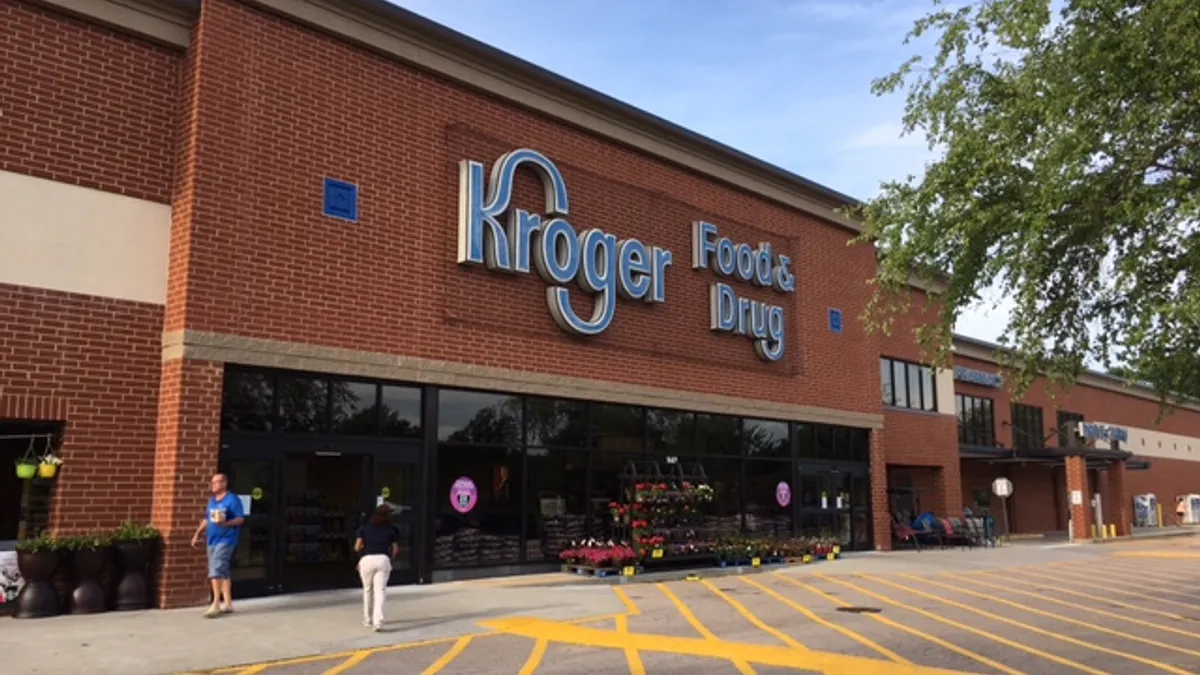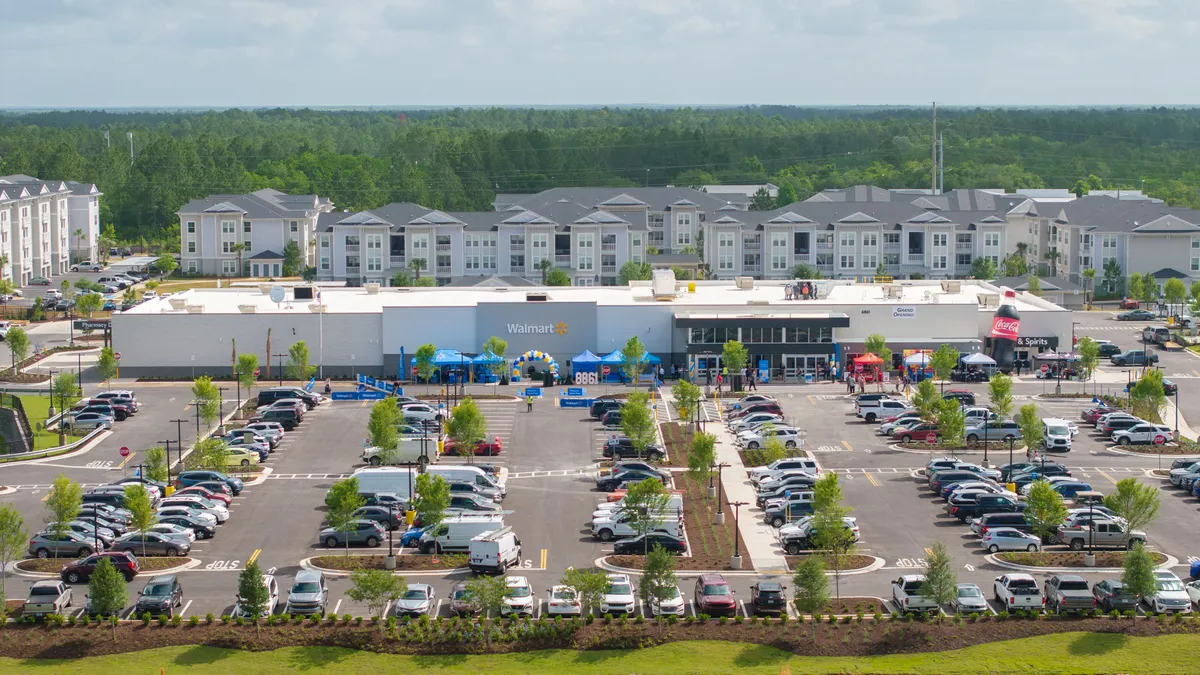Dive Brief:
- Kroger reported net sales of $31 billion for the fourth quarter ending February 3, according to a company release, a 12.4% increase over the same period last year.
- The retailer reported $562 million in adjusted revenue, or 63 cents per share, up from 53 cents per share last year. This was in line with analysts’ estimates, as were same-store sales, which increased 1.5%. Gross margins were 21.9% of sales, a 30 basis point drop from the same period a year ago.
- Kroger projects 2018 earnings per share of $1.95 to $2.15, below the $2.15 Wall Street had projected for the company. Company shares fell 6% in pre-market trading as a result.
Dive Insight:
Kroger’s Restock plan continues to deliver results. Launched last fall, the initiative focused on the company’s core strengths along with promising new revenue streams, and has improved Kroger’s ability to generate returns and compete on price. Following two quarters of negative comp-store sales last year, the grocer has adjusted, and this marks the third-straight quarter of comp gains.
Things have been going so well lately that investors and analysts hoped to see the company project accelerating profitability. But looking at its earnings forecast for 2018, it seems Kroger’s new strategy will keep it at a jog rather than building to a run — at least for the near future.
The Cincinnati-based retailer is still under tremendous competitive pressure. Although deflation has eased, Amazon and Walmart along with fast-growing discounter Aldi are keeping prices tamped down. Aldi, which recently partnered with Kohl’s on a co-location deal, is building more than 100 stores a year and remodeling existing ones to better compete with traditional grocers like Kroger. Meanwhile, Amazon continues to leverage its Prime membership program to draw customers, including a cash-back credit card deal and same-day delivery through Prime Now.
The company may still need a transformative deal to achieve the growth Wall Street would like to see. Reports have linked Kroger to numerous companies, including Ace Hardware and even Alibaba. A recent bid for online club store Boxed.com faltered, according to reports.
In the meantime, Kroger will continue to focus on its strengths, including the digital side of the business, which grew sales 90% in 2017. Its Clicklist store pickup program — currently available at more than 1,000 stores — will keep expanding. Kroger is also investing in store technology, including a skip-checkout program and a “shelf edge” initiative where digital shelf displays sync with consumers’ phones to offer special pricing and promotions.
Private label sales, which bring in more than $20 billion annually for Kroger, will also continue to be a focus, as will fresh meal initiatives. Its Prep + Pared meal kits are now available in hundreds of stores, and underscore the retailer’s focus on gaining more share of stomach as shoppers’ away-from-home spending continues to increase.
Kroger announced it will receive a tax benefit of $200 million, and that it will split those funds equally among employee, store and shareholder investments. Appearing on CNBC this morning, chief financial officer Mike Schlotman said that’s not as big of a bump as some analysts had hoped for, and could account for some of its early stock price decline.
“I know there are some analysts out there that put way more than that in their initial estimates for our next fiscal year, and I’m sure that’s causing a little bit of consternation as they look at the numbers,” Schlotman said.
Wall Street jitters aside, Kroger remains well positioned to grow steadily in a fiercely competitive market. With a major deal, it could accelerate that growth significantly and compete head-to-head with Amazon, Walmart and a surging Target.










